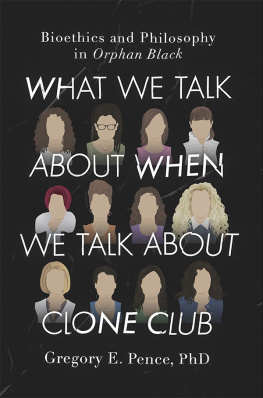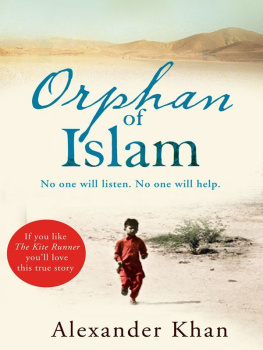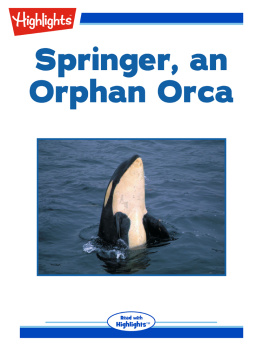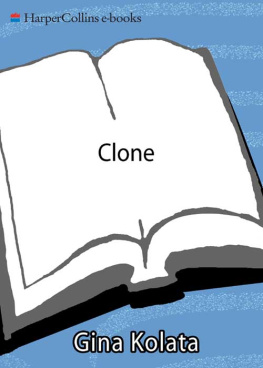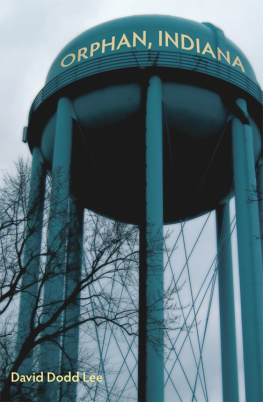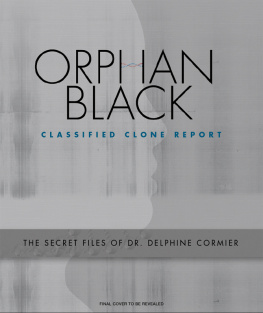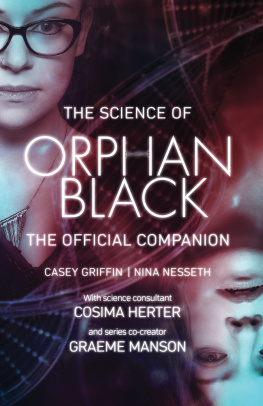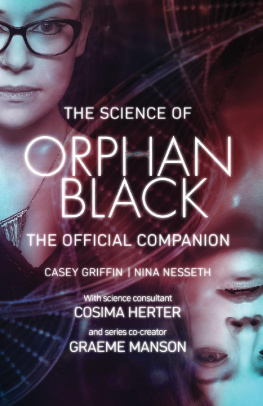Praise for What We Talk About
When We Talk About Clone Club
This book brings together a fascinating television show and the bioethical expertise of a brilliant scholara mix that can only benefit the reader. Professor Pence has been thinking and writing thoughtfully and provocatively about the ethics of cloning for decades. Orphan Black brings cloning to life in ways that Pence treats as an opportunity to learn, think, and even be amused. It is a powerful and rare combination, not to be missed.
A RTHUR C APLAN , P H D , founding director of the Division
of Medical Ethics at NYU Langone Medical Center
Finally, the long-awaited bioethics companion for legions of Orphan Black fans has arrived. Medical ethics expert and science fiction aficionado Gregory E. Pence has written a wonderful book that is both a captivating read as well as highly educational. He is taking us on a whirlwind tour of the ethics of cloning, gene patenting, sexuality and gender, personal identity, and so much more! I highly recommend this for inclusion in your personal dinner table conversation starter kit, student reading materials, or simply as a book to read on your next long flight or at the beach. Buy it, you wont regret it!
U DO S CHUKLENK , P H D , professor of philosophy and
Ontario Research Chair in Bioethics
Novels, movies, and television series often promote fallacies about human cloning. In this timely book, Professor Greg Pence fights fire with fire, transforming Orphan Black from hit series into bioethics and philosophy text. His thoughtful analysis of cloning fact and fiction draws upon a wealth of scientific and sociological research. Professors and students alike will enjoy this rich and entertaining book.
K ERRY L YNN M ACINTOSH , professor of law,
Santa Clara University
WHAT WE TALK
ABOUT WHEN
WE TALK ABOUT
CLONE CLUB
THIS PUBLICATION IS UNOFFICIAL AND UNAUTHORIZED.
IT HAS NOT BEEN PREPARED, APPROVED, AUTHORIZED,
LICENSED, OR ENDORSED BY ANY ENTITY THAT CREATED
OR PRODUCED THE WELL-KNOWN TELEVISION SERIES
ORPHAN BLACK.
Copyright 2016 by Gregory E. Pence
All rights reserved. No part of this book may be used or reproduced in any manner whatsoever without written permission except in the case of brief quotations embodied in critical articles or reviews.

BenBella Books, Inc.
10300 N. Central Expressway, Suite #530, Dallas, TX 75231
First E-Book Edition: March 2016.
Library of Congress Cataloging-in-Publication Data
Names: Pence, Gregory E.
Title: What we talk about when we talk about clone club : bioethics and philosophy in Orphan black / Gregory E. Pence.
Description: Dallas, Texas : Smart Pop, 2016.
Identifiers: LCCN 2015046218 (print) | LCCN 2016002881 (ebook) | ISBN 9781942952343 (paperback) | ISBN 9781942952350 (electronic)
Subjects: LCSH: Orphan black (Television program) | Bioethics on television. | BISAC: PERFORMING ARTS / Theater / History & Criticism. | PHILOSOPHY / Ethics & Moral Philosophy. | SOCIAL SCIENCE / Popular Culture.
Classification: LCC PN1992.77.O75 P46 2016 (print) | LCC PN1992.77.O75 (ebook) | DDC 791.45/72dc23
LC record available at http://lccn.loc.gov/20150462183
Editing by Leah Wilson and Vy Tran | Copyediting by James Fraleigh
Proofreading by Chris Gage and Michael Fedison
Text design and composition by Silver Feather Design
Full cover by Sarah Dombrowsky
Front cover and interior illustrations by Ralph Voltz
Printed by Lake Book Manufacturing
Distributed by Perseus Distribution | www.perseusdistribution.com
To place orders through Perseus Distribution:
Tel: (800) 343-4499 | Fax: (800) 351-5073 | E-mail:
Significant discounts for bulk sales are available. Please contact Aida Herrera at .

Orphan Black and Bioethics
B ioethics is one of todays most exciting new fields. Orphan Black is one of the most exciting shows on television. Bioethics explores ethical issues in medicine and science. Orphan Black dramatizes ethical issues in medicine and science. What could be more appropriate than a marriage of the two? Like the two interwoven strands of nucleotides that make up DNA molecules, the famous double helix, they are intimately linked.
Bioethics erupted into the consciousness of North Americans in 1962 with a LIFE magazine article about the God Committee, which controversially decided on the basis of social worth who lived, and who died, in getting access to then-scarce kidney dialysis machines. As science and technology became more advanced, so did the ethical issues surrounding them: the questionable status as living persons of comatose patients with brain-stem reflexes such as Karen Ann Quinlan, Nancy Cruzan, and Terri Schiavo; legal decisions about abortions; debates about heart transplants, surrogate mothers, AIDS, the vulnerability of psychiatric patients, greedy Big Pharma, Dr. Kevorkian, Octomom, research on animals, and Obamacare; treatment of intersex, gay, and transgender persons; and enhancements of people by drugs, surgery, and (of special relevance to Orphan Black) genetic interventions.
Then, of course, there looms the mega-bioethical issue of our times: cloning humans. From the moment in 1997 that banner headlines screamed about the cloning of Dolly the sheep, the world has been fascinated with the possibly horrific implications of human clones. Perhaps no other ethical issue in modern history has grabbed more attention, caused more hysteria, or inspired so much imaginative film and literature.
Orphan Black quintessentially dramatizes human cloning. By placing a clone, Sarah Manning, at the center of the story, and surrounding her with clone sisters and brothers from Projects Leda and Castor as well as the political and religious groups vying to control them, there is just no way the show could avoid engaging with clonings profound moral questions. Through the Emmy-worthy acting of Tatiana Maslany and a science-driven plot, Orphan Black raises issues about living at the edge of what it means to be a human, investigates the impact of nature and nurture on personality and character, and asks profound social and ethical questions about personal identity: How do our birth origins (whether we are created sexually, via assisted reproduction, or cloning) affect who we are? How does being gestated by a surrogate affect us later? What is it like to have not just one identical twin, but eight or fourteen identical twins? What if you and those twins are raised apart, with different parents and in different cultures? What happens if you are all raised together, like the Castors?

